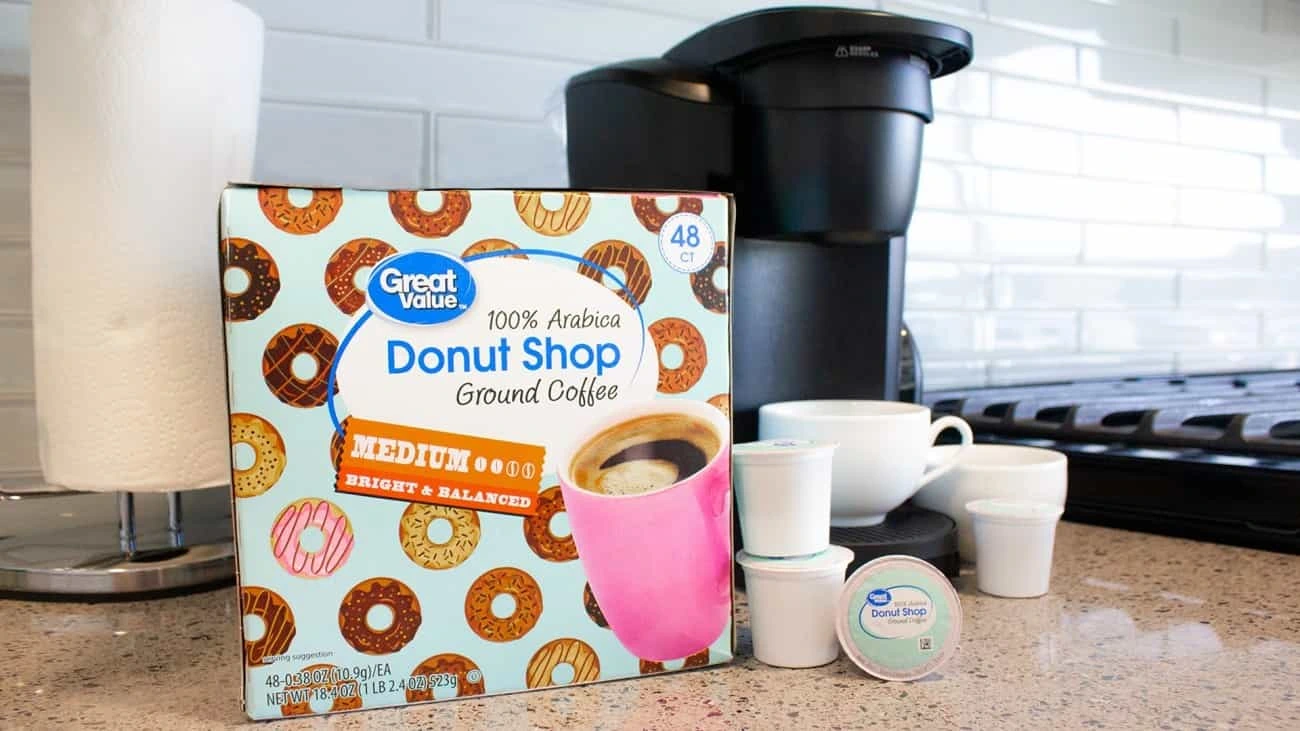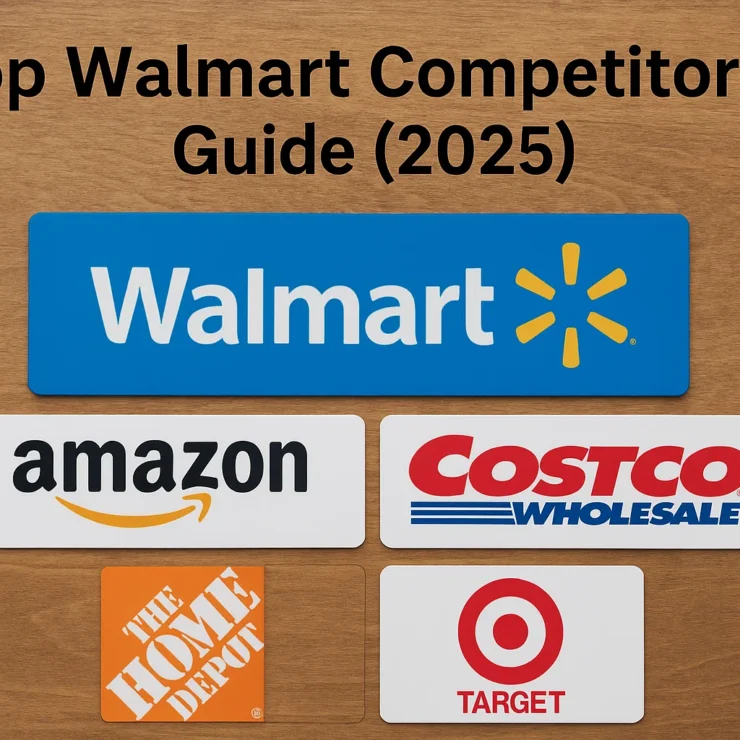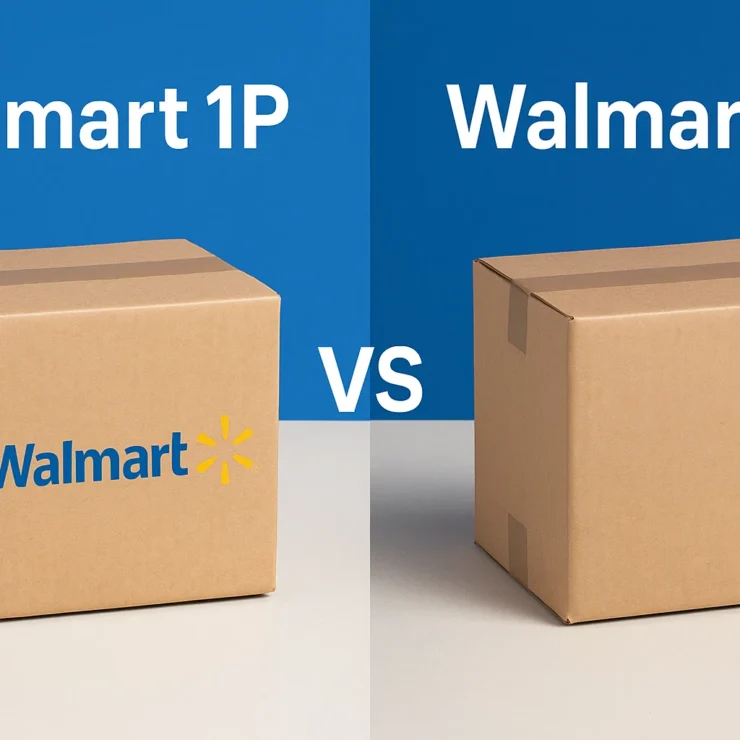In 2025, private label products have become a major force in retail — and Walmart Marketplace is leading the charge. No longer just about low prices, Walmart’s private label strategy blends value, quality, and innovation across categories like food, fashion, home, and wellness.
Driven by consumer trust, demand for affordability, and Walmart’s vast reach, private label sales are booming — with over 75% of U.S. shoppers purchasing these brands. From clean-label foods like Bettergoods to fashion-forward lines like Time and Tru, Walmart’s private labels now rival national brands in both quality and appeal.
For sellers, this shift creates new opportunities. Whether you’re a supplier or launching your own brand on Walmart Marketplace, tapping into private label can be a smart move.
This guide explores everything you need to know about Walmart’s private label strategy — and how to make it work for you.
What are Private Label Brands?
Private label brands — also known as store brands — are products manufactured by a third party and sold under a retailer’s name. Unlike well-known national brands that are available across multiple retailers, private label items are exclusive to one store, giving it a competitive edge.
Key Characteristics of Private Label Brands:
Exclusivity – Only available at the retailer that owns the brand.
Brand Control – Retailers control everything from pricing and packaging to quality and marketing.
Higher Margins – Retailers often enjoy better profit margins since they avoid paying national brand premiums.
Why Private Labels Are Growing:
Changing consumer perception – Once seen as lower quality, private label brands now often match or exceed the quality of national competitors.
Affordability – These products are typically more cost-effective, making them appealing during economic downturns or inflation.
Brand loyalty – When customers fall in love with an exclusive product, they’ll keep coming back to that store.
Walmart has strategically expanded its private label portfolio over the years, turning once-basic offerings into powerhouse brands across food, fashion, health, and home categories.
Walmart’s Private Label Brands Strategy
Walmart’s private label strategy in 2025 continues to be a core driver of its retail dominance. The company has taken major steps to rebrand, relaunch, and refine its private label offerings to appeal to today’s value-conscious but quality-driven consumers.
Strategic Focus Areas
Consumer-Centric Product Development
Walmart uses data analytics and consumer insights to create products that cater directly to customer needs. Whether it’s gluten-free snacks or eco-friendly cleaning supplies, they ensure their offerings stay aligned with shopper preferences.Affordability Without Compromise
One of Walmart’s strongest appeals has always been price. Their private label strategy emphasizes keeping prices low without sacrificing quality — positioning their brands as real alternatives to expensive national labels.Brand Differentiation
Walmart doesn’t just slap its name on every product. It develops individual private labels that each speak to a specific niche:Great Value for affordability in groceries
George and Time and Tru for fashionable yet affordable apparel
Equate for health essentials, mirroring name brands like Tylenol or Advil
Sustainability and Innovation
Walmart is also putting sustainability at the forefront, especially in 2025. Many of its private labels now feature:Eco-conscious packaging
Ethically sourced materials
Reduced carbon footprint initiatives
Key Takeaway:
Walmart’s private label strategy isn’t just about saving money — it’s about building trustworthy, high-quality alternatives that keep customers loyal and engaged across all categories.
Comprehensive List of Walmart Private Label Brands in 2025
🥫 Food & Beverages Brands
Great Value
Launched in 1993, Great Value is Walmart’s flagship private label brand for food and household products. It’s designed to offer high-quality items at low prices, often sitting side-by-side with national brands on the shelves.
Why it stands out:
Offers thousands of products, from frozen foods and pantry staples to baking supplies and snacks.
Products undergo rigorous quality testing to match or exceed the taste and performance of national brands.
Known for extremely competitive pricing, making it a go-to for budget-conscious families.
Popular Great Value items:
Frozen vegetables and fruit
Boxed cereal and breakfast foods
Dairy and egg products
Spices, oils, and canned goods
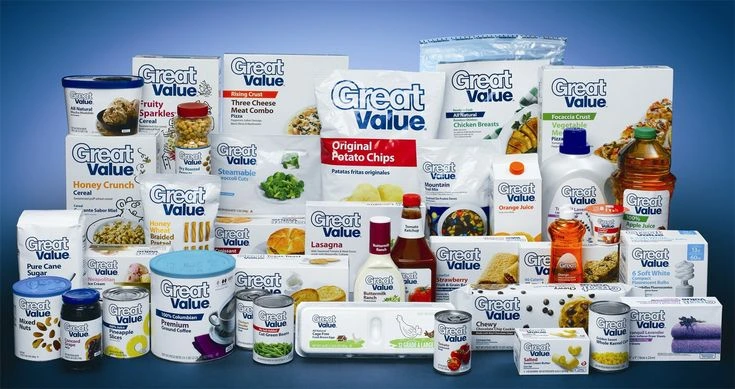
Walmart Bettergoods
Introduced in 2024, Walmart Bettergoods is the retailer’s modern take on clean eating and health-conscious grocery trends. It directly targets millennial and Gen Z consumers who seek transparency and healthier food options.
Highlights:
Includes plant-based meals, organic snacks, and gluten-free alternatives.
Features eco-friendly packaging and responsibly sourced ingredients.
Positioned as a premium-tier Walmart brand, but still affordable.
Top categories under Bettergoods:
Plant-based frozen entrees
Organic chips and granola
Cold-pressed juices and almond milk
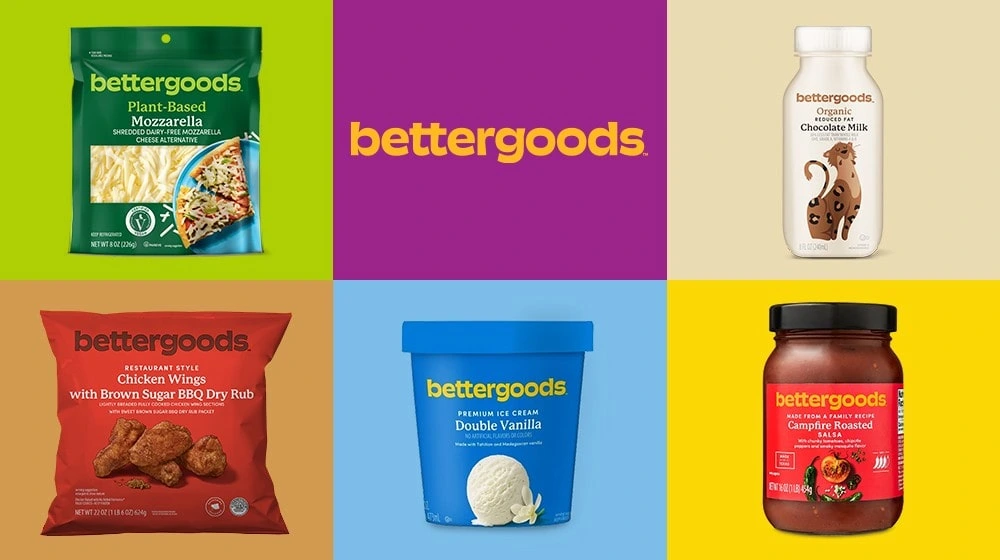
Marketside
Marketside focuses on fresh, deli-style offerings and grab-and-go meals. Positioned slightly higher-end than Great Value, it brings a “gourmet convenience” feel to Walmart shelves.
Brand traits:
Fresh salads, wraps, subs, and sandwiches
Pre-packed fruit and veggie trays
Ideal for lunch-time shoppers and busy families
Why shoppers love it:
Ready-to-eat and saves time
More artisanal presentation and packaging
Affordable compared to fast food or meal delivery
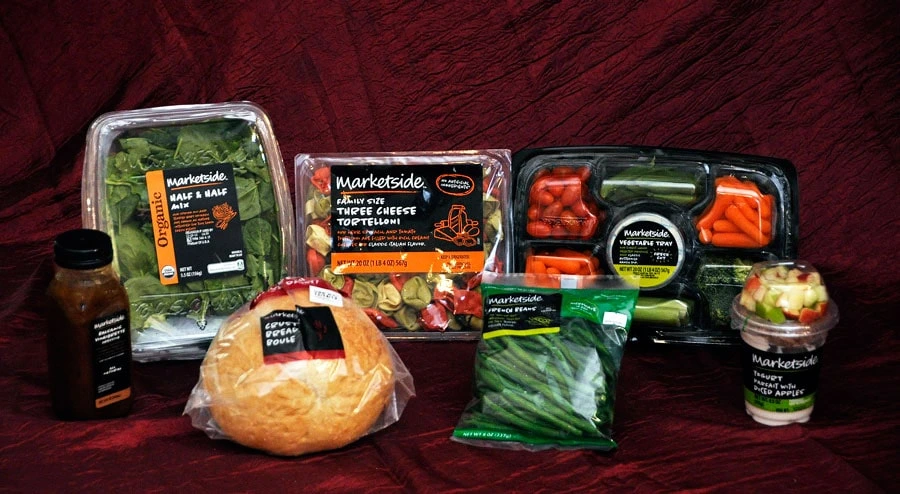
👚 Apparel & Clothing Brands
George
Originally from the UK, George is Walmart’s versatile fashion label known for affordable wardrobe basics with a classic, timeless feel.
Key strengths:
Wide range of men’s and women’s apparel
Seasonal trends combined with everyday staples
Popular items include polos, jeans, slacks, and jackets
George is ideal for:
Office attire on a budget
Everyday, comfortable looks

Time and Tru
One of Walmart’s most popular women’s fashion lines, Time and Tru delivers trend-forward clothing at prices significantly lower than department stores.
Key features:
Stylish and practical designs for daily wear
Offers seasonal collections, denim, accessories, and basics
Emphasizes inclusive sizing
Why it resonates:
Fashion-forward looks for under $30
Popular with working moms, college students, and trend-savvy shoppers

Terra & Sky
Dedicated to plus-size fashion, Terra & Sky combines comfort with confidence-boosting designs.
Notable features:
Clothing made with stretch-friendly fabrics and flattering silhouettes
Expansive size range, from 0X to 5X
Budget-friendly pricing for high-quality fit
Popular items:
Flowy tops
Jeggings and leggings
Lounge sets and activewear

Wonder Nation
Walmart’s go-to kids’ brand, Wonder Nation, offers everything from baby clothes to teen apparel and school uniforms.
Why parents love it:
Durable fabrics that survive playtime
Cute designs, character tie-ins (like Disney), and lots of color
Unbeatable pricing, especially for fast-growing kids
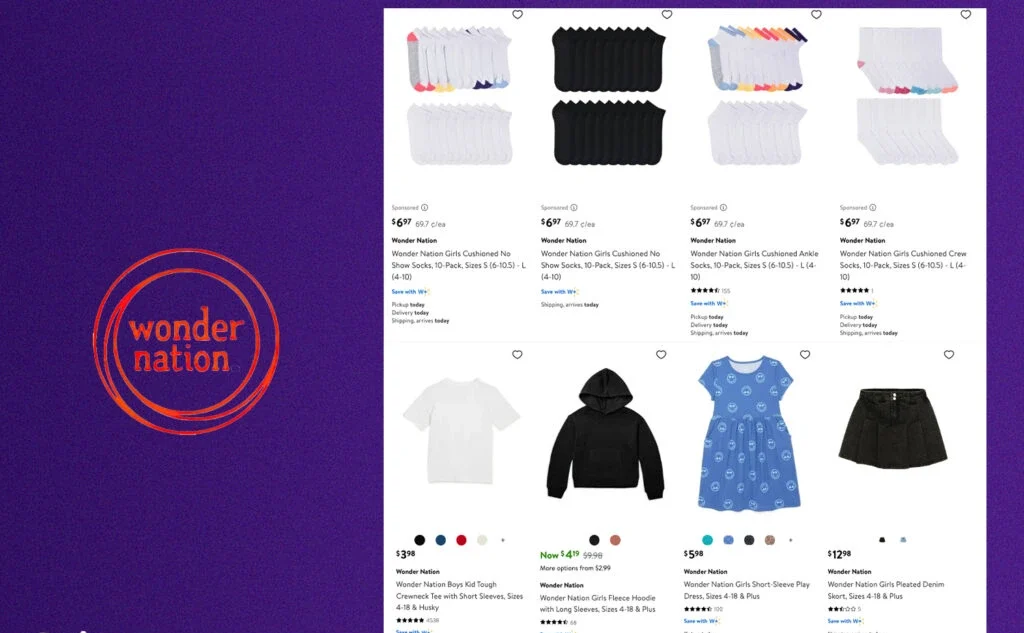
🧴 Health & Beauty Brands
Equate
Walmart’s largest private label in personal care, Equate is often found right next to brands like Tylenol, Neutrogena, and Colgate.
Why customers trust it:
Formulas that match brand-name counterparts
Extensive product range: vitamins, skin care, cold medicine, etc.
FDA-approved OTC medications
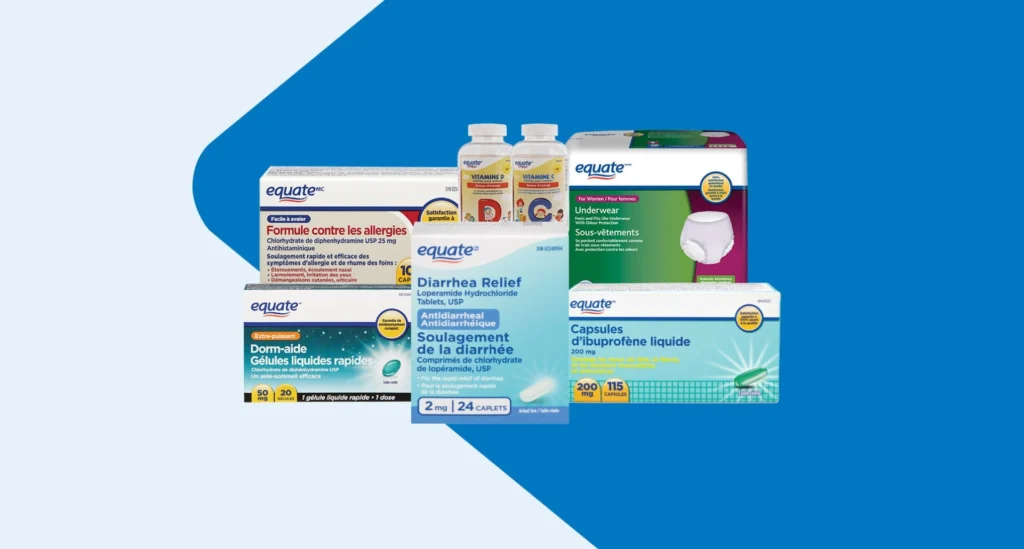
Spring Valley
A health and wellness brand focused on natural supplements and vitamins.
Brand benefits:
Includes organic, non-GMO, and herbal supplements
Expanding rapidly in 2025 due to demand for immunity boosters
Known for high transparency and value
Simply Basic
The under-the-radar beauty brand for budget-conscious shoppers.
Product types:
Body wash, fragrance sprays, lotion, and bath bombs
Simple packaging with fun scents and pastel colors
Best for:
Everyday use, teens, and gift baskets
Why Walmart’s Private Label Brands are Popular
Walmart’s private label brands have gained significant traction, becoming a key driver in the retailer’s success. Here’s why:
1. Affordable Pricing
Walmart’s private labels, such as Great Value and Equate, offer competitive prices without compromising quality. By eliminating middlemen, Walmart can deliver high-quality products at a fraction of the cost of national brands, making it an attractive option for budget-conscious shoppers.
2. Wide Product Range and Variety
Walmart’s private label brands span various categories, from groceries to clothing. Products like Marketside and George cater to diverse needs, giving shoppers access to a wide array of affordable, high-quality products all under one roof. Whether you’re shopping for fresh produce or stylish apparel, Walmart’s private labels have you covered.
3. Brand Trust and Recognition
Consumers trust Walmart’s private label brands because they are associated with the retailer’s reputation for quality and affordability. Over time, brands like Great Value and Equate have built a loyal customer base that values the consistency and reliability of Walmart’s private label offerings.
Why Sell Private Label Products on Walmart?
Selling private label products on Walmart has become a lucrative opportunity for many entrepreneurs and businesses. Here’s why it’s worth considering:
1. Access to a Massive Customer Base
Walmart is one of the largest retail platforms in the world, with millions of customers visiting their stores and online marketplace. Selling private label products on Walmart gives you access to this vast audience, increasing your chances of reaching potential buyers who are actively looking for quality products at affordable prices.
2. Lower Costs and Higher Margins
Since private label products don’t involve middlemen or brand premiums, selling them allows you to keep costs low and potentially achieve higher profit margins. By manufacturing or sourcing products under your own brand, you maintain control over production costs, leading to better pricing flexibility and profitability.
3. Enhanced Control Over Product Quality and Branding
With Walmart’s private label products, sellers have the freedom to design and manufacture products to their own specifications. This means you can customize packaging, features, and branding to suit your target market. Additionally, controlling your brand image can help differentiate your product in a crowded marketplace.
4. Trust in Walmart’s Reputation
As a seller on Walmart, your private label brand will benefit from the trust and recognition Walmart has built over decades. Customers often feel more comfortable purchasing private label items from a trusted retailer like Walmart, knowing that the retailer stands behind the product quality.
How to Sell Private Label Products on Walmart
Selling private label products on Walmart involves a series of steps to ensure that your products are listed, promoted, and optimized for success. Here’s a step-by-step guide on how to get started:
1. Set Up a Walmart Seller Account
Before you can start selling private label products, you’ll need to create a seller account on Walmart’s marketplace. Visit the Walmart Marketplace website, sign up as a seller, and provide necessary details such as your business name, tax ID, and payment information. You’ll also need to agree to Walmart’s terms and conditions for selling.
2. Research and Select Your Private Label Products
Next, research the market and select the products you want to sell under your private label. Look for products with a proven demand but not overly saturated with competitors. Tools like Walmart’s Seller Center or third-party market research tools can help you identify trending products and niches with growth potential.
Product sourcing: You can either manufacture the products yourself or work with a supplier who can create the products with your branding.
Quality control: Make sure that the products meet both your quality standards and Walmart’s requirements.
3. Brand Your Product
Once you’ve chosen the products, you’ll need to create a strong brand identity. This includes designing a memorable logo, creating attractive packaging, and developing a brand story that resonates with your target audience. A unique and trustworthy brand will help your private label stand out in the competitive marketplace.
4. Create Product Listings
Once your products are ready to be sold, you can begin creating product listings on Walmart. Make sure your listings are optimized to attract customers:
Title: Include relevant keywords and ensure it’s easy to understand.
Description: Write clear, compelling descriptions that highlight the benefits and features of the product.
Images: High-quality images showcasing the product from various angles are essential to convert browsers into buyers.
Price: Set competitive pricing for your products while factoring in the cost of production, shipping, and Walmart’s fees.
5. Optimize for Search and SEO
Optimize your product listings for Walmart’s search engine. Just like Amazon and other e-commerce platforms, Walmart has a search algorithm that ranks products based on relevance and quality. Use relevant keywords in your product titles, descriptions, and tags to improve your visibility.
Product titles and descriptions: Focus on what customers are searching for.
Customer reviews: Encourage happy customers to leave reviews, as positive feedback increases the trustworthiness of your brand.
6. Set Up Fulfillment
To sell on Walmart, you can choose between fulfilling your orders yourself (Self-Fulfilled) or using Walmart’s Fulfillment Services (WFS). With WFS, Walmart stores, packs, and ships your products for you. This can be a great option if you want to streamline your operations and leverage Walmart’s trusted fulfillment infrastructure.
7. Launch and Promote Your Products
Once everything is in place, launch your products and promote them on Walmart. Use Walmart’s advertising tools like Sponsored Products to increase visibility. You can also take advantage of social media, email marketing, and influencer collaborations to drive more traffic to your listings.
8. Monitor Performance and Adjust
After launching your products, monitor their performance regularly. Pay attention to metrics such as sales, conversion rates, and customer feedback. Based on the data, adjust your listings, pricing, and marketing strategies to optimize your sales.
Conclusion
Selling private label products on Walmart is a powerful way to capitalize on the platform’s massive reach and customer base. With Walmart’s continuous growth in the e-commerce space, private label brands are becoming an essential part of its marketplace strategy. By leveraging Walmart’s vast resources, including its seller tools, fulfillment services, and marketing capabilities, private label sellers have the opportunity to create successful businesses.
Whether you are just starting or already have experience in e-commerce, Walmart’s private label strategy offers a promising pathway to growing your business and reaching millions of customers across the globe.
What is the Best Walmart Private Label Brand?
The best Walmart private label brand largely depends on your target market and the type of products you wish to sell. However, some of the most popular and successful Walmart private label brands include Great Value (for groceries), George (for apparel), and Equate (for health and beauty products). These brands are well-established, trusted by consumers, and offer a wide variety of high-quality products.
Are Walmart Private Label Products High Quality?
Yes, Walmart’s private label products are known for their competitive pricing while maintaining a reasonable standard of quality. Walmart ensures that these brands meet industry standards, often offering products that are on par with or better than national brand equivalents. However, the quality can vary from brand to brand, so it’s essential to review customer feedback and conduct market research before making a decision.
How Can I Start Selling Walmart Private Label Products?
To start selling Walmart private label products, first, you need to sign up for Walmart’s Marketplace. After that, you can source or create your private label products, list them on the platform, and start optimizing your listings for visibility. Utilize Walmart’s fulfillment services and marketing tools to help boost sales and establish a strong presence on the platform.
How Does Walmart’s Private Label Strategy Benefit Sellers?
Walmart’s private label strategy benefits sellers by offering a chance to enter a highly competitive market with a trusted brand name. With lower competition from third-party brands, private label sellers can build a loyal customer base. Additionally, Walmart offers tools and resources for sellers to optimize listings, track sales, and manage inventory efficiently, making it easier to scale a business.
What Types of Products are Best for Private Label on Walmart?
The best types of products for private label on Walmart include everyday essentials that customers frequently purchase. Popular categories include groceries, health and beauty, apparel, and home goods. It’s essential to research market trends and consumer demand before choosing your product range to ensure profitability.
Contact Us for Tailored Solutions – Stores Automation:
Ready to transform your Walmart store and achieve big wins? Contact us at Stores Automation for personalized solutions that leverage the power of automation for your business. Reach out to us at 302-204-8244 or via email at info@storesautomation.com. Sign up and Embark on the path to e-commerce success with Stores Automation – where small changes lead to big wins!

